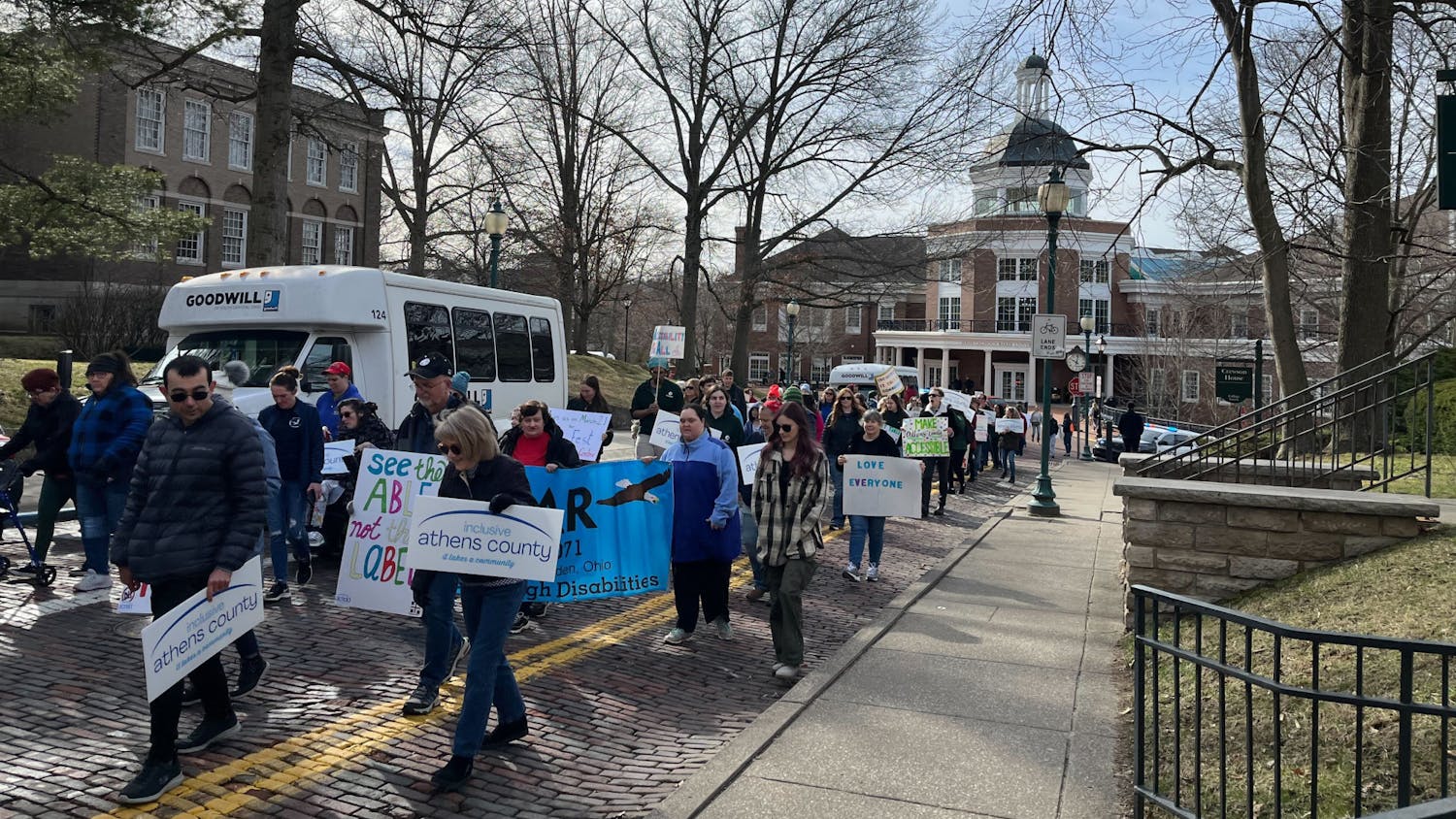As an editorially independent student publication, we count ourselves lucky to be able to operate at an arm’s length from our university in order to report objectively on issues that matter.
We’re students here. And we love our university. Athens and Ohio University have provided us with indelible experiences and will surely shape the course of our lives.
But sometimes, the burden of the truth weighs heavier than that of our love for this institution. And when it comes down to it, we can’t be afraid to ask difficult questions or publish stories that illuminate wrongdoing.
This has been an extraordinarily busy news year for us, between deaths of students, record-high reports of sexual assault and cases of faculty misconduct. In the midst of this storm of newsworthy events, however, it has become increasingly difficult for us to report on our own university. And now that the end of the semester draws near, we reflect back on a year that has been wrought with half-answered questions and a lack of transparency.
That’s why we’re calling upon OU officials to loosen the gatekeeping procedures that bottleneck reporting practices and reduce our faith in the university’s claim of transparency.
We have a lot of reporters, which means we ask a lot of questions. It’s all part of the reporting process.
And, of course, we understand that it takes time to get answers to complex questions.
However, we feel as if we are constantly dealing with a university that is far more invested in protecting its own image than it is in acknowledging its own shortcomings and atoning for them when necessary.
When important stories fall through because of delays in answers to questions or due to radio silence in the wake of a public records request, we feel as though the process is keeping us from doing our job: to provide context to important stories, answer questions readers may have, and challenge the university and its processes.
When employees at Legal Affairs are out of the office, our investigative reporters — who handle some of our most sensitive stories — are put on standby and left in limbo until they return. We depend on the staff of Legal Affairs to fulfill our Sunshine Law requests, which require documents and meetings of certain agencies to be available to the public. And while the employees comply with some of our requests in a reasonable amount of time (as Ohio law states), many of our reporters are left waiting days, weeks, months or even years on records and documents they need.
When reporters and editors sit down to decide how to cover important and sensitive stories, we often know that we won’t have easy — or sometimes any — access to records in time to report on the story in a better, more significant way.
One of the most frustrating issues for our staff is the gatekeeping of candid information and the lack of access to faculty and staff members at the university.
When a reporter wishes to speak candidly with a professor, for instance, about a topic, they are usually redirected to the University Communications and Marketing team.
Reporters go to interview high-level university officials and are chaperoned during their meetings by university spokespeople.
Oftentimes, when asked for comment, university spokespeople will respond by sending links to news releases or university policy memos. Sometimes, reporters’ questions are not addressed at all because they are not able to ask the source directly.
We know the people in public relations roles are doing the things they can to address the questions our reporters have every week. They take the time to reach out to those sources and make sure we eventually get the answers we need.
We think, however, the system and process for handling information at the university is flawed and ultimately creates more work for those individuals, making their jobs harder and the time required to fulfill our requests longer.
We’re not sure if this is a problem that individual departments across the university can fix on their own. However, perhaps additional staffing of University Communications and Marketing and the Legal Affairs office would be a step toward the university backing up its commitment to openness. We call on all university officials to operate with a sense of candor in mind and to give The Post, and other media outlets, a chance to tell their stories.
At the end of the day, as long as there is a story to tell, the requests for information will continue to end up on their desks, creating a bottleneck and stifling transparency.
Editorials represent the majority opinion of The Post's executive editors: Editor-in-Chief Lauren Fisher, Managing Editor Maddie Capron, Digital Managing Editor Alex McCann, Assistant Managing Editor Jessica Hill and Creative Director Abby Gordon. Post editorials are independent of the publication's news coverage.






